
Monet’s Floating Worlds at Giverny: Portland’s Waterlilies Resurfaces
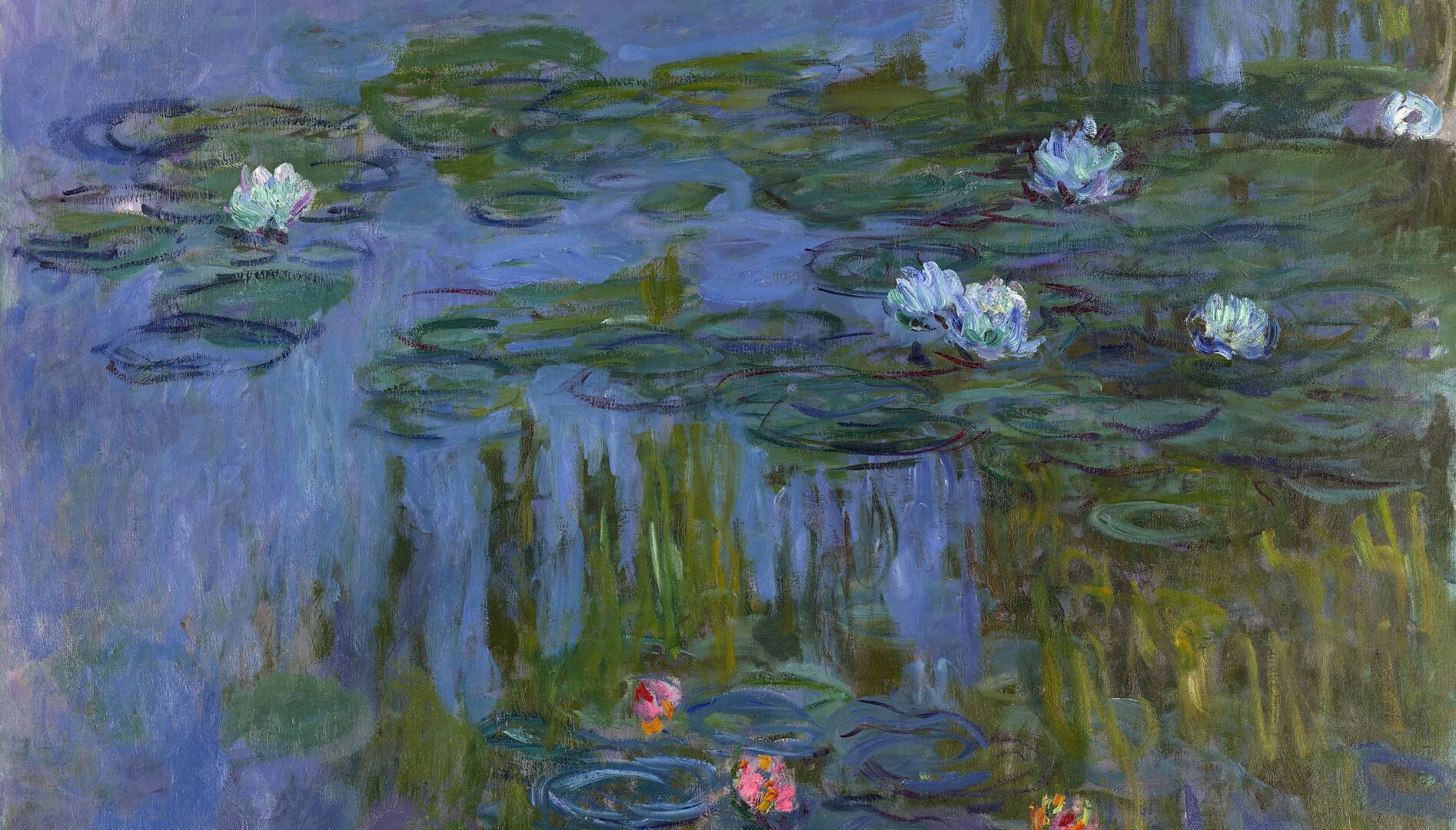
Overview
The monumental canvas Waterlilies by Claude Monet is perhaps the most treasured painting in the Portland Art Museum’s collection. Now, after over 65 years, it finally looks much as the artist intended—without varnish. The detailed process of conservation resulted in new color harmonies and brightness. To celebrate the restoration of the painting and the campus transformation project, this beloved icon is presented in its historical context. Monet and his fellow Impressionists were obsessed with Japanese “floating world” prints that had only been available in Europe and the United States for a few decades, yet transformed the way artists looked at the world. They introduced new concepts of beauty and new ways of seeing the world that decentered the European tradition.
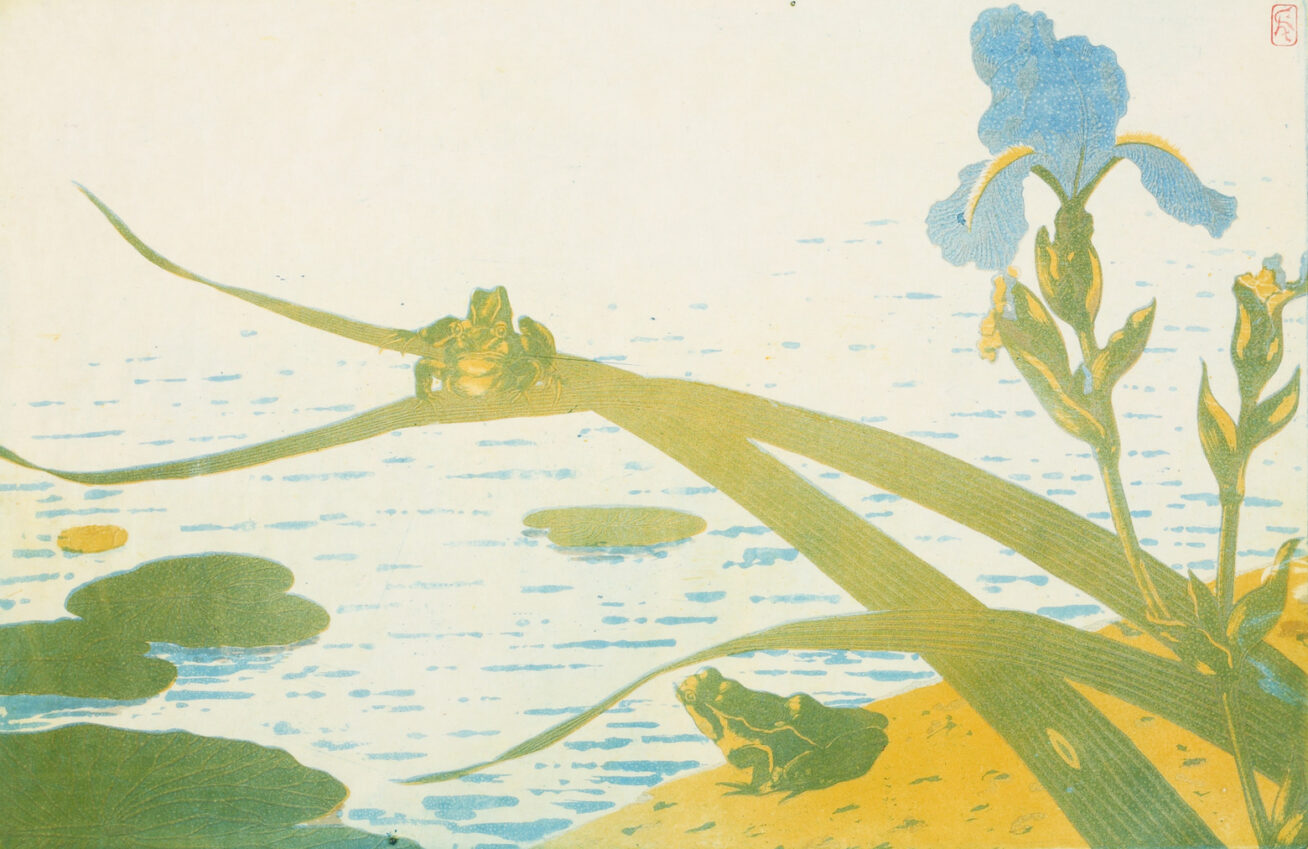
Monet’s startlingly disorienting composition is without a horizon line or depth. It combines floating leaves, blossoms, and the reflections of hanging willow branches, with the suggestion of raindrops, resulting in a mesmerizingly contemplative image of nature. Yet the nature in Portland Art Museum’s Waterlilies painting is artificial—a pond constructed by Monet, stocked with waterlily specimens imported from all over the world, and tended by eight gardeners. Monet created over 250 paintings of his waterlily pond in his final years, an astonishing project.
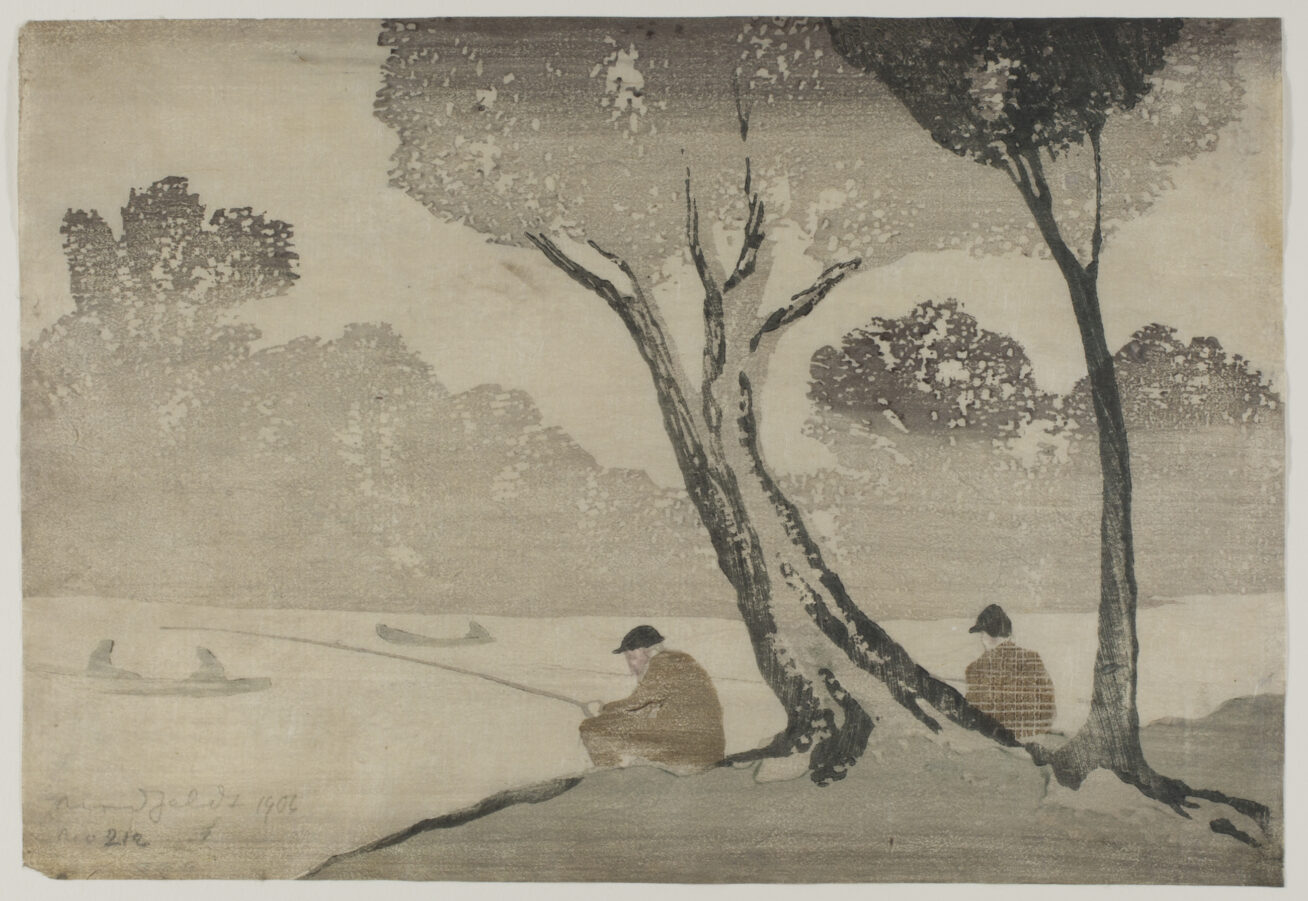
Monet decorated his expansive house in Giverny, France, with a selection of the hundreds of important woodblock Japanese prints he had collected by masters such as Toyokuni, Hiroshige, and Utamaro. Visitors experience a recreation of Monet’s collection with prints from the Museum’s Asian Art collection in a section called Monet’s Japanese Prints; followed by a section on the Impressionist and European response to Japanese artists, with works by Henri Rivière, Édouard Vuillard, Jules Chéret, and others. Lastly, the newly conserved painting is presented alongside the story of the research and restoration project. Waterlilies is joined by contemporary photographs of Giverny and Portland’s Japanese gardens by Susan Seubert and Stu Levy.
Co-organized for the Portland Art Museum by Charlotte Ameringer, Chief Conservator, Mary Weaver Chapin, Ph.D., Curator of Prints and Drawings, Lloyd DeWitt, Ph.D., The Richard and Janet Geary Curator of European & American Art Pre-1930, and Jeannie Kenmotsu, Ph.D., The Arlene and Harold Schnitzer Curator of Asian Art.
Related events
-
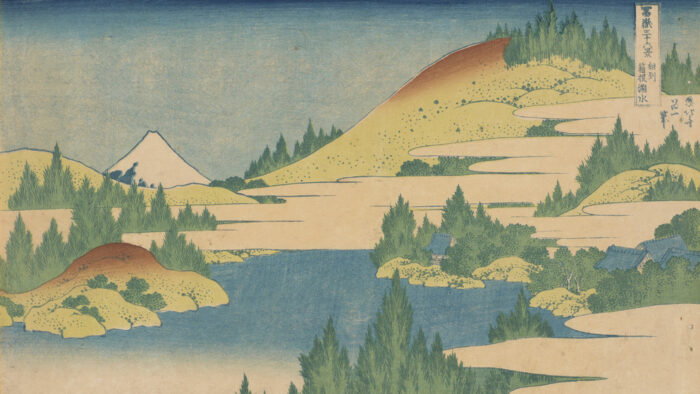 Free & discounted
Free & discountedJapanese Printing Techniques Demonstration with Atelier Meridian
General accessibilityAug 7, 2025
1219 SW Park Ave
-
 Lectures & talks x Member events
Lectures & talks x Member eventsMember Pop-Up Program: Monet’s Floating Worlds
General accessibilityJul 24, 2025
1219 SW Park Ave
-
 Free & discounted
Free & discountedMeet the Curator: Informal Conversation on Monet’s Floating Worlds
General accessibilityJul 11, 2025
1219 SW Park Ave
-
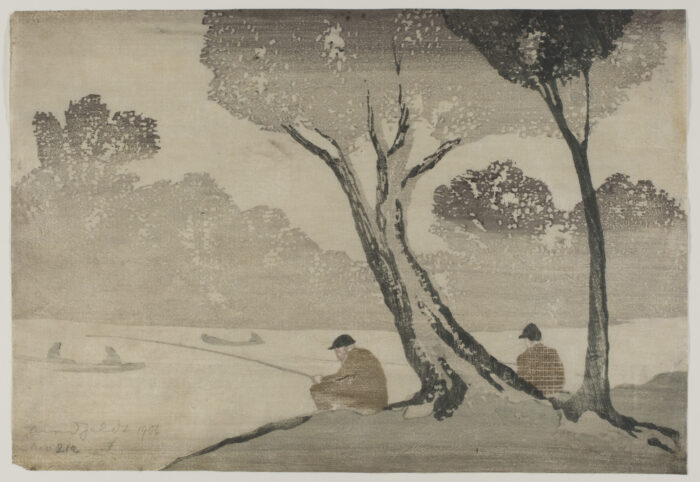 Free & discounted x Screenings & experiences x Tomorrow Theater
Free & discounted x Screenings & experiences x Tomorrow TheaterImpressionist Film Screening with Live DJ Remix
Gender neutral restrooms General accessibility Wheelchair accessible restroomsJul 3, 2025
3530 SE Division St.
-
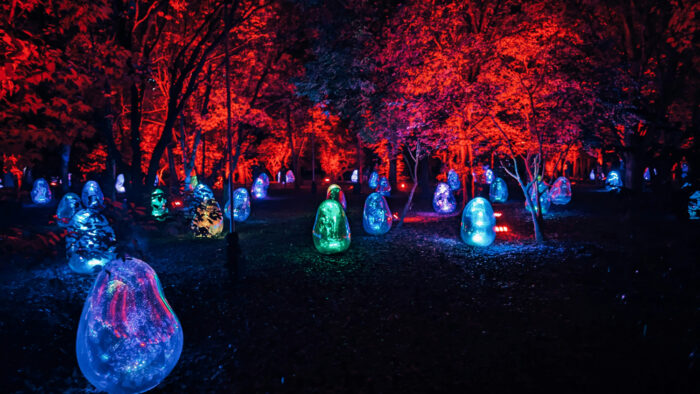 Classes & camps
Classes & campsTimeless Meets Tech // Augmented Reality & Monet’s Floating Worlds (ages 11-14)
General accessibilityMar 24, 2025 – Mar 25, 2025
934 SW Salmon St.
-
 Educator events x Free & discounted
Educator events x Free & discountedEvening for Educators: Monet’s Floating Worlds at Giverny
General accessibilityMar 12, 2025
1219 SW Park Ave
-
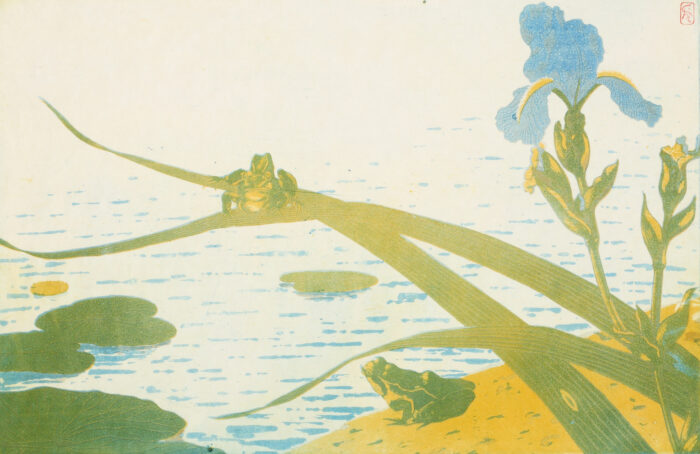 Free & discounted
Free & discountedPaper Flower Workshop: Crafting Beauty Inspired by Japanese Prints
General accessibilityMar 6, 2025
1219 SW Park Ave
Resources
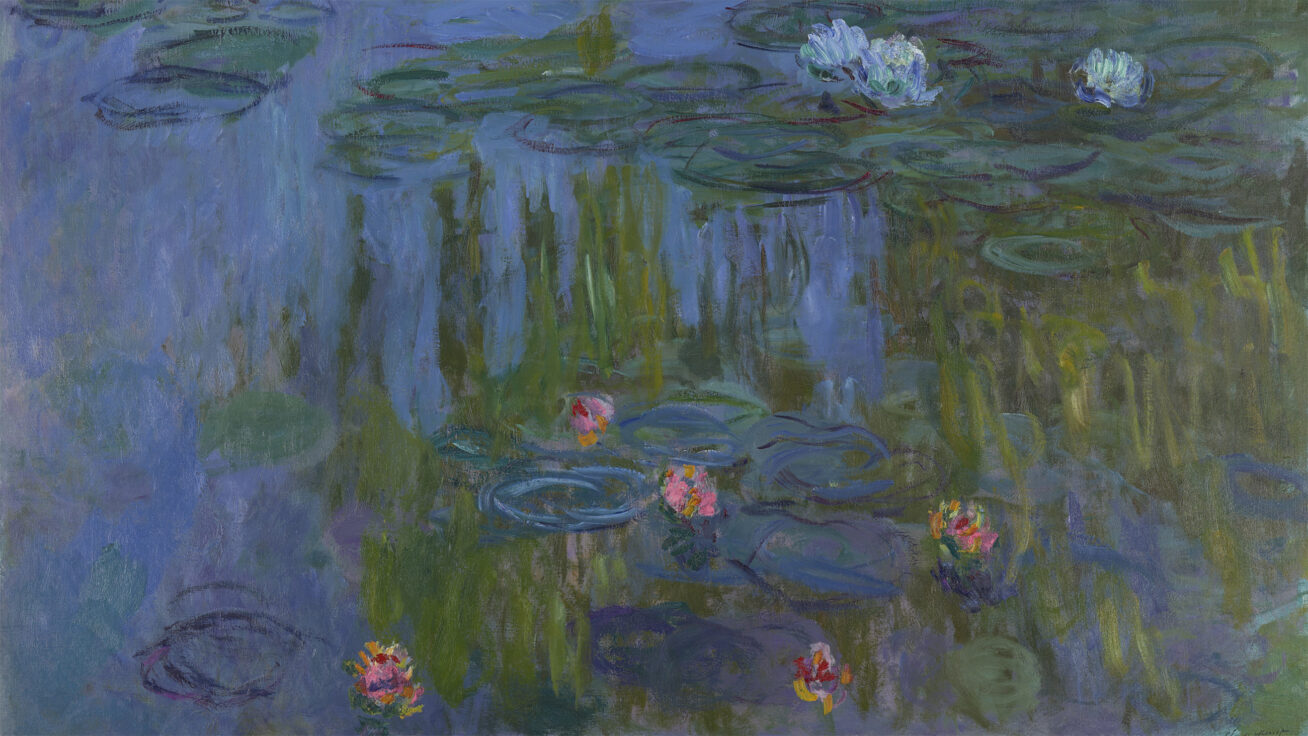
Unveiling Monet’s Waterlilies: Conserving a PAM Masterwork
Acknowledgments
Major support for this exhibition is provided by Ann Flowerree/Flowerree Foundation.
All exhibitions at the Portland Art Museum are underwritten by the Exhibition Series fund. Major annual support is provided by Mary and Ryan Finley, William G. Gilmore Foundation, Mary and Pete Mark Family Foundation, Laura and Roger Meier Family, James F. and Marion L. Miller Foundation, City of Portland, Oregon Community Foundation, and Business Oregon.
The restoration of Monet’s Waterlilies and related programs are supported in part by a generous grant from the Bank of America Art Conservation Project.